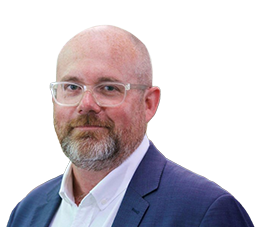Press conference at SunRice, Leeton
SENATOR TIM AYRES, MINISTER FOR INDUSTRY AND INNOVATION AND MINISTER FOR SCIENCE: I'm the Minister for Industry and the Minister for Science and I've got Senator Deb O'Neill who's a Labor Senator in the Federal Parliament here today as well.
JOURNALIST: Awesome. So, you made the trip out to see the upgraded mill. How does it feel to see the local industry boost being implemented?
AYRES: It's really good to come back to rice growers in Leeton and see what a big impact this $15 million investment is going to have on plant productivity and the sustainability of this vital piece of Australian regional industrial infrastructure. This will deliver good jobs, investment and a more profitable future for rice growers. I know exactly how important these kinds of investments are for regional farmers.
JOURNALIST: And I guess, for the industry locally, it’s really important for rice growers and producers [inaudible].
AYRES: Yeah, this is a smart investment of new technology that is going to make a real difference to the productivity of this plant, but it's also going to make jobs better. It delivers robotics and high tech manufacturing in Leeton in the heart of the Riverina.
JOURNALIST: 75 years on from SunRice and after 100 years of rice production [indistinct] in Australia and The Riverina. There's been a lot of [indistinct] rice conference over the last few days and the issue for a lot of producers is water and being able to sustain it. How do you see the government supporting producers?
AYRES: Well, the first thing to say is the development of the rice industry and that 75 years of the rice cooperative and the associated industrial and manufacturing development that's occurred across The Riverina is something that everybody in The Riverina should be deeply proud of. The members of rice growers, absolutely. But the impact in the community would be decent working jobs for thousands and thousands of families over the last 75 years. It's made an incredible difference in terms of the economy and sustainability of this region.
In terms of the approach of the Environment Minister Murray Watt, he is engaged fully with the sector, with rice growers directly, and all of the stakeholders in this. I'll leave his portfolio issues to him, and I'll be working closely with him as we keep engaged with this important part of Australia's regional economy.
We understand what good jobs in regional communities mean and what that means for a Future Made in Australia in manufacturing jobs, in bush towns. Not just along the Murray Darling system but more broadly.
JOURNALIST: [Indistinct]. For the future, are there any more investment [inaudible].
AYRES: Well, I'll let rice growers talk to their future investment plans. This is a big call for the Board of Rice Growers to make. It's a project that's gone well, it's gone under budget, it's been managed really well. They've worked the process out with their staff, I think, in a really intelligent, thoughtful kind of way. I'm really excited about what this means not just for this plant, but for rice growers' capability right across the region.
This firm and the cooperative are really important to Australia. They're important in economic terms and agricultural terms here in this region. But rice growers' global footprint is a powerful national asset and I've seen their work in our region and what an impact that has in economic development and strategic terms in the Asia Pacific region. I've always been an enthusiastic backer of rice growers, and I'll keep doing it.
Thank you. Any other questions for me?
JOURNALIST: Why is it important we have these sorts of infrastructures in regional New South Wales?
AYRES: Well, the jobs matter, but also the value-add matters. So, making sure that it's not just rice, packaging rice up, that's really important. But also, the other value-add components that rice growers do means more profits, more income is delivered to local families, and it makes the rice industry more sustainable. So, that value-add principle is really important to the Albanese Government. That's why we've developed the biggest pro-manufacturing package in Australian history, the Future Made in Australia plan. $22.7 billion worth of tax credits and production credits for critical minerals, for metals processing here in Australia. And that means a lot in terms of building our industrial capability in regional Australia as well.
JOURNALIST: Can you tell us how big of a proportion that is in the regional New South Wales economy with rice growing as manufacturing, how big of a chunk does that make up?
AYRES: Well, I want to see more blue collar jobs and engineering jobs in regional Australia. I want to see them in agriculture, manufacturing, in mining and resources, in the value add for those sectors. Those jobs really matter for country towns to make sure that when girls and boys leave school, there's apprenticeships and engineering cadetships for them that means that there's real jobs. They can stay there, stay with their families, make these communities stronger.
No worries. Thanks team, see you later. Thank you.

